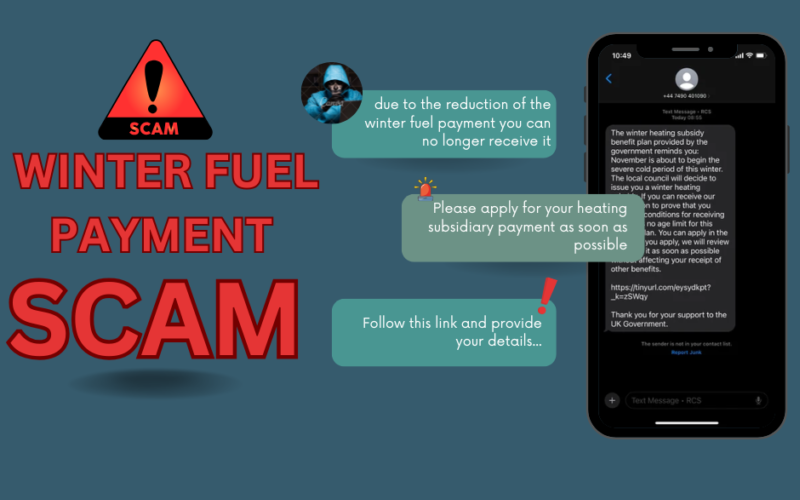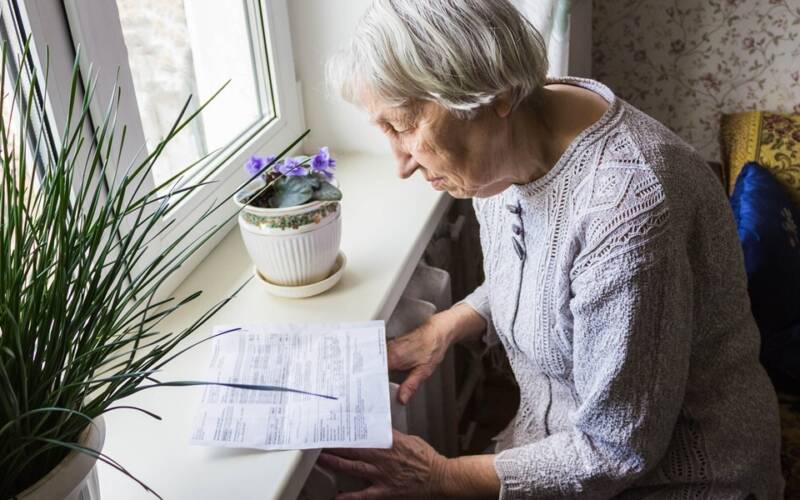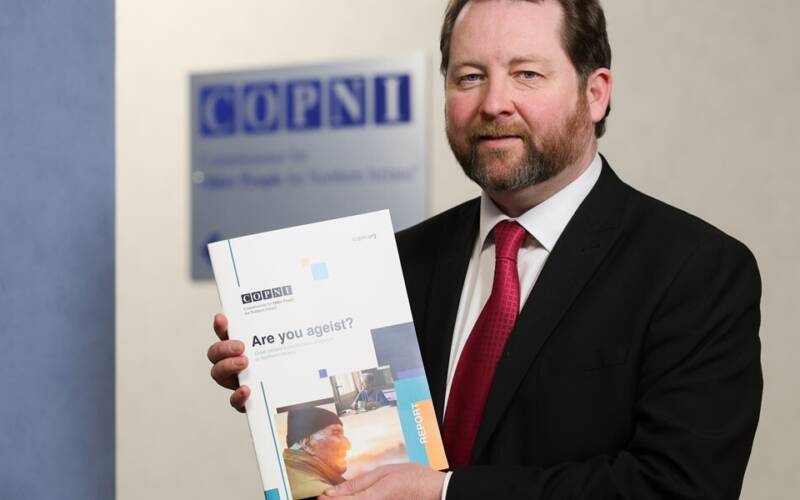The Commissioner for Older People issues a stark warning of a rise in fraudulent text messages targeting older people, falsely claiming to be from the UK Government offering Winter Fuel Payments.
The Commissioner has received reports of texts messages exploiting vulnerable members of society at a time when many are already facing financial hardship due to the ongoing cost-of-living crisis and recent cuts to public services.
The scams which may seem official, are designed to deceive individuals into providing personal and banking details, exposing them to financial and identity fraud.
The Commissioner for Older People, Eddie Lynch has expressed deep concern over the impact of these scams on older people, particularly those who may already be struggling with the challenges of the colder months:
“As we brace for another challenging winter, the recent cuts to the Winter Fuel Payment present great concern for pensioners, many of whom live on fixed incomes and are already struggling to make ends meet. Fraudsters are exploiting the current financial climate and people’s anxieties.”
“These payments are not just financial support; they represent a lifeline for countless older people by helping them manage the high costs of heating their homes, and these disgraceful scams are preying on that need.”
"The impact of falling victim to these scams goes beyond financial loss, it can cause significant emotional distress, loss of trust, and leave individuals feeling even more isolated. This is why it’s so critical that older people, and their families are aware of fraudulent messages."
What is Winter Fuel Payment?
Winter Fuel Payment is an annual tax-free payment for households that include someone born on or before 22 September 1958. From autumn 2024, those not on pension credit or other means-tested benefits will no longer get the annual payments, worth between £100 and £300.
The payment had previously been made available to anyone above state-pension age, but now will be restricted to those on benefits and pension credit.
Scammers are attempting to exploit this situation.
Please be aware that these messages can arrive either as a SMS Text Message to your phone or as an email to your email account on your computer or your phone. This text actually originated from a phone number in Denmark, that was likely hijacked or cloned.
🔒 Stay vigilant, protect your personal information, and share this message to help keep our communities safe.
If you suspect a scam message, remember:
Government will never contact you
They will never text to ask for personal or banking information.
Do not click on any links
Clicking unknown links puts your information at risk, don't let the cyber-criminals get your information.
Stay vigilant
Always check official government websites or call their helpline if you're unsure about any communication.
The Commissioner urges everyone to follow these important steps:
- Do not respond to messages claiming to be from the UK Government.
- The UK Government will NEVER contact you via text to ask for personal details or banking information.
- Do not click on any links or provide any personal information in response to such messages.
- Always verify the authenticity of any communication by checking official UK Government websites or calling their official helpline for guidance.
- If in doubt, report suspicious messages to Action Fraud at www.actionfraud.police.uk or call 0300 123 2040.




